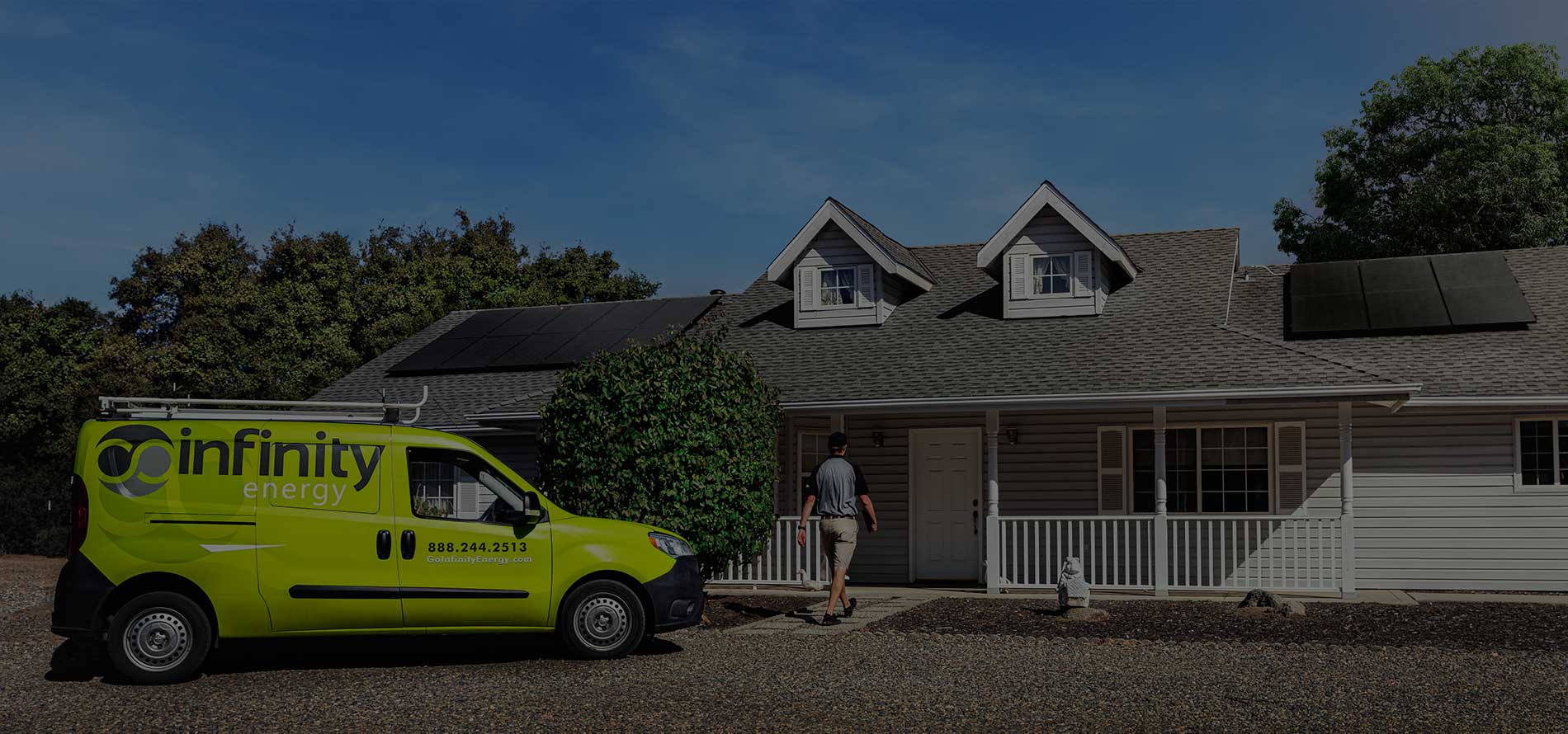Off-Grid vs. Grid-Tied Solar
With popular energy storage solutions for homes like the Tesla Powerwall, many homeowners ask about breaking all ties to their local utility company by going “off the grid”. The reality is that off-grid homes are more trouble than they are worth.
One of the advantages of having a home solar system is energy independence. In other words, going Solar is a good move whether your home is off-grid or not because you have control over your energy source. By pairing Solar with a battery backup, your home becomes much more resilient against power outages. Another sweet bonus: If you’re connected to the grid with a battery, you can program it to release energy at peak times, which saves you money.
What Is “Going Off-Grid” Anyway?
Going “Off-Grid” is generally defined as getting away from your utility company entirely, severing all ties, and generating enough power consistently to meet your home’s energy needs. So why would someone want to do that?
Benefits of Getting Off-Grid
The majority of homeowners don’t enjoy dealing with utility companies, and we get it – with wildfires, brownouts, and blackouts, as well as rate increases… they can be a real hassle when they are in full control of your home’s electricity.
The problems of going off-grid often outweigh the benefits.
Cons of Off-Grid Living
First and foremost, future energy living is probably not going to be a true off-grid model. Microgrids (a great way for local communities providing and storing power for each other to protect against outages) are not just an idea anymore. This is happening. The question is really just when you’ll bring your home on-board. Because a microgrid system allows your community to weather power outages together, it’s not really necessary to go off-grid to begin with.
The second major issue with getting off-grid is that it’s highly regulated. Going off-grid could require many sleepless nights trying to cut through nearly impossible red tape. County and City regulations can prevent you from cutting off the utility company, and innocent missteps in the process can come with steep penalties.
Assuming you do get through all the red tape… off-grid Solar installations are a lot of work, and easily far more than they are worth. Electrical systems can be complex, and limiting your power sources means that if one goes down, you’ll need alternative sources of power that you’ve now cut yourself off from. Backup Batteries need to be charged somehow, and DIY alternatives to Solar backup are extremely picky and difficult to implement. That’s a big downside.
Finally, it’s not practical to get off the grid, anyway. If there’s no utility company attached to your Solar and Battery home, you lose the benefits of net-metering. Net Metering Agreements, in short, allow you to get credit for energy you produce from Solar that you don’t use, causing your electric meter to spin backwards. The Net Metering Agreement also allows you to use unspent credits against your electric bill, further reducing your costs.
Excess energy needs a place to go – and if your kWh’s from Solar are not getting banked somewhere, you’re left with two options: wasting money, or stuffing it under the mattress and hoping nothing happens.
The Best Solution Is Grid-Tied Solar
By staying attached to the grid, you get to turn your utility company into an energy bank with your Net Metering Agreement. Just like a savings account, they hold onto the extra energy your Solar creates and give it back to you when you need it. With energy storage options, you are able to store some of that energy locally (The Tesla Powerwall is the clear the industry leader here) providing you with more options, which ultimately can save you a lot of money.
More options means more freedom, more reliability, and less stress. There’s a reason the overwhelming majority of homeowners choose grid-tied Solar when looking to take charge of their own energy.
The Bottom Line is Grid-Tied Solar Works Better
At the end of the day, what matters is making sure homeowners have flexible options for where they can draw and store energy. Infinity Energy provides homeowners like you a free consultation to see if your home qualifies. To see if your home meets eligibility requirements, fill out our form or call us at 888-244-2513.



